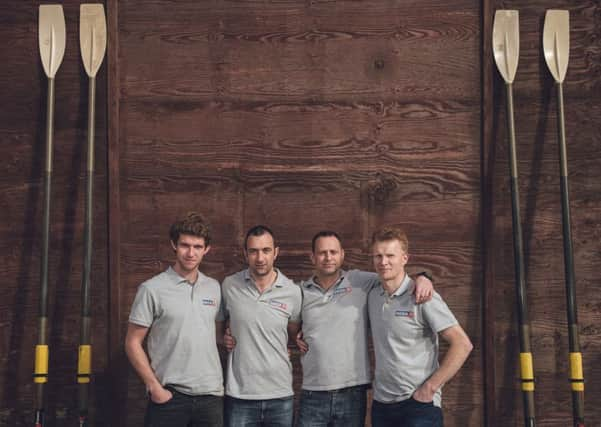Bracklesham firefighter to row across Indian Ocean for Parkinson's disease


The remarkable journey, which will span a colossal 3,600 nautical miles, will start in Exmouth in Western Australia in June and end in Port Louis, Mauritius.
Bracklesham resident Billy Taylor will be joined by Robin Buttery, who was diagnosed with Parkinson’s two years ago at the age of 43, and fellow rowers Barry Hayes and James Plumley.
Advertisement
Hide AdAdvertisement
Hide AdSkipper Billy Taylor said: “Rowing the Indian Ocean is no easy feat at the best of times – the physical and mental challenge will be enormous for all of us.
“Having Robin on board has changed the entire project – it’s no longer about four idiots taking on a huge endurance challenge. Now, it has become a platform in which Robin can reach out to people with young onset Parkinson’s disease and raise awareness of this condition that so few people know about.”
The journey will mark 200 years since Parkinson’s forefather James Parkinson’s first publication of the disease.
Robin Buttery said: “Having Parkinson’s or any disability for that matter is no barrier to pursuing your goals.
Advertisement
Hide AdAdvertisement
Hide Ad“I want to encourage others with a Parkinson’s diagnosis to take up exercise in whatever form works for them, and use it to help combat the symptoms associated with the disease. A life of adventure does not have to end with a diagnosis.”
Oxford Brookes University will closely monitor Robin’s performance to understand more about Parkinson’s disease.
Professor Helen Dawes, who leads the movement science group at the university, said: “We are beginning understand more about how Parkinson’s effects metabolic pathways.
“Robin taking on this challenge is a unique opportunity to observe the effects of extreme endurance exercise – it has the potential to provide some important insights that may help to redefine how Parkinson’s is viewed and ultimately treated through new drug therapies and neuro-rehabilitation programmes.
Advertisement
Hide AdAdvertisement
Hide Ad“We’re hoping the findings will send the search for therapies and a cure in a new direction.”
The four-man crew, three of whom are already record breakers, plan to beat the current world speed record, which is 71 days. Less than 20 crews have successfully completed the crossing and there have been many more failed attempts.
The men will have no support team and will be taking it in turns to row two hours on, two hours off, day and night. They have a three-month supply of freeze-dried food packages and a desalinator that turns sea water into drinking water.
Former Olympian and renowned sports scientist, Professor Greg Whyte has been working closely with the men in helping them prepare for the row across the Indian Ocean.
Advertisement
Hide AdAdvertisement
Hide AdHe said: “The boys have worked incredibly hard for this row – they’re driven and tenacious, which is crucial when undertaking a challenge of this enormity.
“They will be pushing their bodies to the absolute limit and the pressure on them to succeed will be immense.
“I believe that they’re more than ready and I have no doubt they will succeed.”
Donations can be made at www.crowdfunder.co.uk/row-the-indian-ocean or www.rowtheindianocean.com